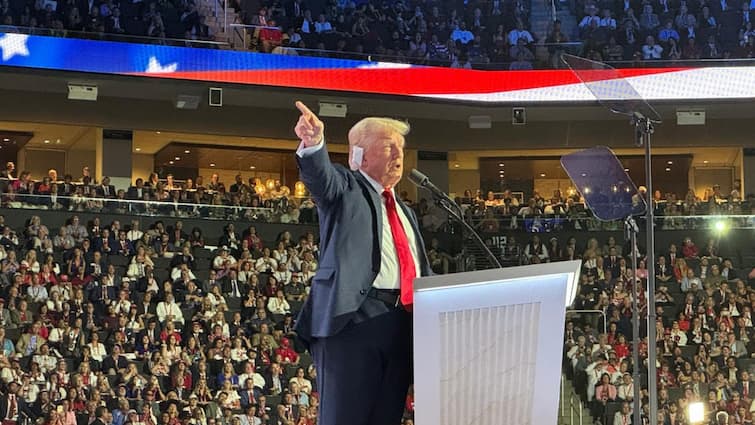As the 2024 U.S. presidential election approaches, the stakes are high not only for traditional financial markets, but also for the rapidly evolving cryptocurrency space. The intersection of politics and crypto has never been more critical, with regulatory decisions and economic policies shaping the future of digital assets. At the heart of this political moment is one question: How will the election results impact cryptocurrency regulation and market pricing, both in the U.S. and globally?
A turning point for cryptocurrency regulation
The United States plays a central role in shaping global cryptocurrency regulation. Historically, the regulatory environment for digital assets in the United States has been uneven, with different federal and state agencies taking different approaches. As the cryptocurrency industry matures, the demand for clear and consistent guidelines to govern this new asset class is increasing.
Earlier this year, the SEC approved Bitcoin Spot ETFs that are attracting institutional investors who were previously cautious due to regulatory concerns. This has led to increased institutional interest, creating greater liquidity and bringing more stability to the market. Positive developments in the US crypto space often have a ripple effect on global market sentiment, impacting Asian and Indian markets to put a regulatory framework in place.
In the 2024 election, for the first time, there has been open discussion about regulating cryptocurrencies in the country, with claims that this election could serve as a turning point. If a pro-cryptocurrency administration comes to power, the sector could benefit from more progressive policies aimed at fostering innovation. Donald Trump has expressed support for the idea of making the United States a leader in the cryptocurrency space. This could include promoting more favorable regulations and encouraging the adoption of cryptocurrencies in traditional financial systems. Such a change would signal to investors that the United States is committed to creating a favorable environment for blockchain technology, thereby boosting market confidence and, potentially, prices.
On the other hand, Kamala Harris, a representative of the Democratic Party, has also taken a positive stance towards cryptocurrencies. By accepting cryptocurrency donations for her campaign, she has sent a clear message that steps will be taken to promote the growth of cryptocurrencies, even within the Democratic administration. In this way, the upcoming elections will prove to be a win-win situation for the crypto community.
Impact on market prices
Political outcomes and regulatory changes will undoubtedly influence the price trajectory of the cryptocurrency market. A pro-cryptocurrency administration that enacts favorable regulations could lead to renewed optimism in the market. Investors often respond positively to regulatory clarity, and the removal of legal ambiguities could lead to increased institutional investment in digital assets. Large-scale investors, including corporations and asset managers, would feel more confident allocating capital to cryptocurrencies if they knew the rules of the game.
Bitcoin, often seen as a hedge against inflation, could particularly benefit from such an environment. Historically, bitcoin and other digital assets have performed well in times of regulatory clarity and economic instability. The approval of Bitcoin and Ether exchange-traded funds (ETFs) in the United States earlier this year triggered a notable price rally, highlighting the impact of favorable developments on the market.
That said, the election outcome is not the only factor at play. The Federal Reserve’s monetary policy, particularly interest rate decisions, will also influence cryptocurrency prices. A rate cut by the Fed would inject more liquidity into the market, which could drive up demand for cryptocurrencies as investors seek higher yields than traditional assets offer. The interplay between political leadership, economic policies, and investor sentiment will be key in shaping the future direction of the market.
Global repercussions
The United States is certainly a significant player, but the repercussions of its policies will be felt around the world. Many countries look to the United States for guidance on regulating cryptocurrencies, and changes in U.S. policy could set global precedents. A more welcoming attitude from the United States could encourage other countries to follow suit, creating a more favorable environment for digital assets globally. This would further solidify the role of cryptocurrencies in the global financial system, encouraging their widespread adoption in other countries such as Canada, the EU, and most importantly, India.
The 2024 US election represents a turning point for the future of cryptocurrencies. The combination of political outcomes and macroeconomic factors will shape both the regulatory landscape and market prices in the years to come. A favorable administration could open up new growth opportunities for the cryptocurrency sector.
(The author is the CEO and co-founder of Mudrex, a global cryptocurrency investment platform)
Disclaimer: The opinions, beliefs and views expressed by the various authors and forum participants on this website are personal and do not reflect the opinions, beliefs and views of ABP Network Pvt. Ltd. Cryptocurrency and NFTs are unregulated and can be highly risky. There may be no regulatory recourse for any losses arising from such transactions. Cryptocurrency is not legal tender and is subject to market risks. Readers are advised to seek expert advice and carefully read the offering documents and related important literature on the subject before making any type of investment. Cryptocurrency market forecasts are speculative and any investment made will be at the sole cost and risk of the readers.

